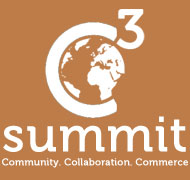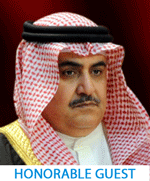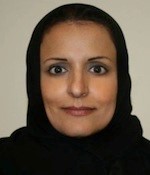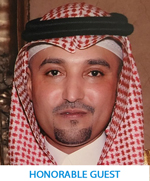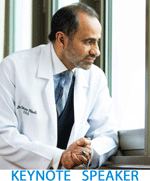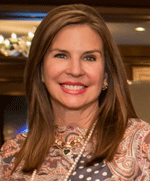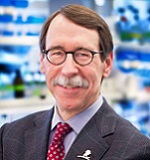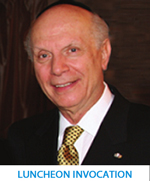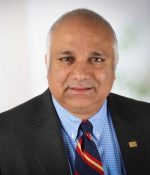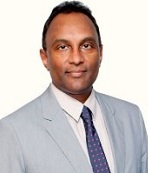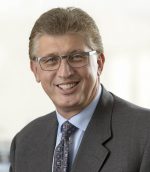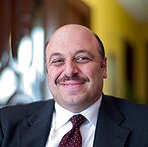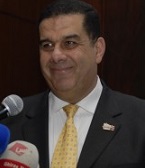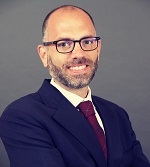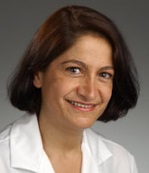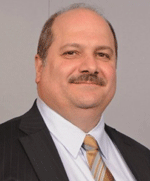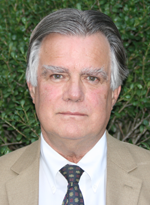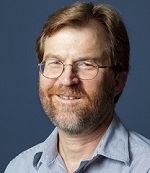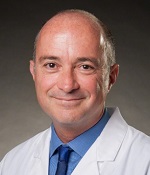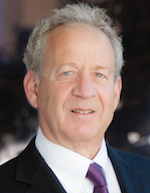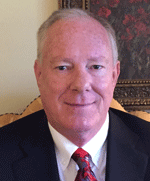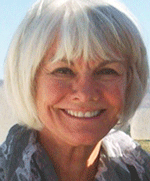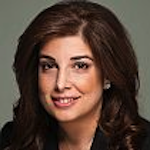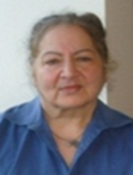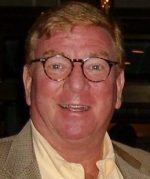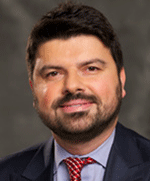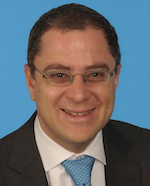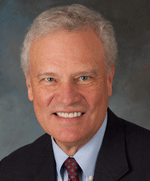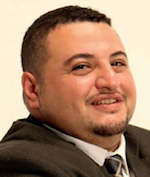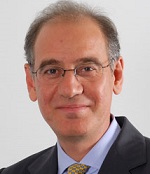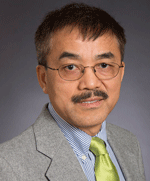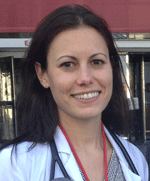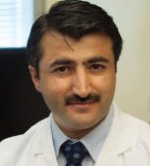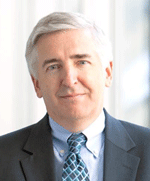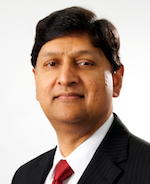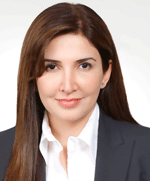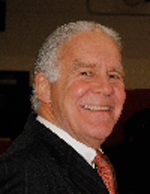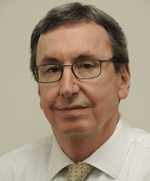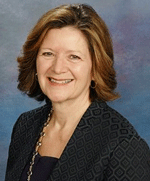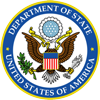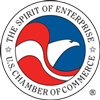2016 C3 US-Arab Healthcare Summit
“Developing Bilateral Solutions to Address Global Healthcare Challenges”
Tuesday, September 27th, 2016
AGENDA – Subject to Change
U.S. and Arab relations rooted in commerce and enterprise are historic and grounded in tradition and mutual interest. These unique relations across the Atlantic have influenced and shaped strategic healthcare partnerships, strengthened alliances, supported B2B and public-private partnerships.
The C3 U.S. – Arab Healthcare Summit 2016 will assemble business leaders, policy makers, educators and healthcare professionals from the Arab world and the United States to bolster and promote U.S. and Arab world initiatives that are focused on the most up-to-date healthcare topics including infrastructure, the shift from communicable diseases, the future of primary healthcare, and cooperative assistance for knowledge transfer.
In short, the C3 U.S. – Arab Healthcare Summit 2016 will address resources, research and access to the best healthcare services in order to improve survival from disease and the quality of life based on the exchange of knowledge and employment opportunities between the two regions.
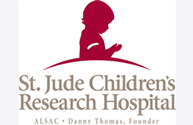
C3 Business and Healthcare Summit Networking Reception
Welcoming Remarks
5:45 pm – 7:00 pm
Monday, September 26th, 2016
Dr. Carlos Rodriguez-Galindo,
Executive Vice President,
Director of International Operations,
St. Jude Children’s Research Hospital
The Union League Club
38 East 37th Street
(S.E. Corner of Park & 37th/Entrance on 37th Street)
New York, NY
Music By:
Mr. Joseph Mohan
7:00 am – 7:45 am
Location: Main Lounge
(First Floor)


Healthcare Summit Registration & Breakfast
Tuesday, September 27th, 2016
The Union League Club
38 East 37th Street
(S.E. Corner of Park & 37th/Entrance on 37th Street)
New York, NY
The 2016 C3 US-Arab Healthcare Summit is an exclusive event dedicated to forging new business relationships, fostering existing partnerships and exchanging best practices by building a cohesive global community through bilateral cooperation.
As globalization is becoming a reality with the world becoming more interconnected through social media and internet more than ever before in areas like economy, energy, environment, security…so is healthcare. Considering “healthcare diplomacy” has become a valuable commodity to bring people and countries together to win the fight against disease and death, the C3 US-Arab Healthcare Summit is focused on how best to capture and help grow this global healthcare market.
Human and financial resources are needed to build balanced global markets which are required to deliver services that are properly and adequately staffed/protected to meet changing bilateral issues. Technologies must be designed and harnessed to foster innovation while providing products and services that are effective yet affordable, accessible, safe and secure.
The C3 US-Arab Healthcare Summit will explore what role business and government can play to support economic development regarding solutions to these challenges. Answers to these questions are being tested and implemented on the world-wide stage every day. Finding success through collaboration, innovation, and partnerships (CIP), in the private and public sectors, is a deliverable the C3 US-Arab Healthcare Summit will look to achieve.
7:45 am – 8:00 am
Location: Lincoln Hall
(Second Floor)
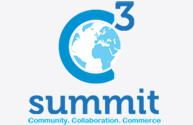
WELCOMING REMARKS
2016 C3 US – Arab Business & Healthcare Summit
Mr. Ransel N. Potter,
Founder & Managing Partner,
C3 Summit International
Simply stated, this C3 US-Arab Business & Healthcare Summit is about exploring ideas, suggestions, and realistic recommendations as possible solutions to today’s bilateral security, technology, commercial development and healthcare challenges. Based on the insights of the Summit’s global leaders and thinkers, participants can begin to immediately implement what they will hear and learn to help bring these innovations, pilot projects, cases studies, public-private partnerships and other practical solutions to fruition in the global commercial and healthcare sectors.
8:00 am – 9:00 am
Location: Lincoln Hall
(Second Floor)
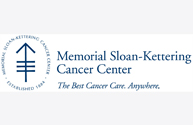


OPENING PLENARY
Building a Global Healthcare System Bottom Up: One Physician at a Time
| Dr. Ghassan Abou-Alfa, (Moderator) Attending Physician, Memorial Sloan Kettering Cancer Center; Chair Heatobiliary Task Force, National Cancer Institute |
Dr. Richard Barakat, Deputy Physician-In-Chief, Regional Care Network and MSK Cancer Alliance, Memorial Sloan Kettering Cancer Center |
Ms. Randa El-Sayed Haffar, Trustee; American University of Beirut, Director; Elmer and Mamdouha Bobst Foundation |
Mr. Michael L. Lovdal, Guest Lecturer Healthcare & Pharma Management Program, Columbia Business School |
Dr. George Cheriyan, CEO/Chief Medical Officer, American Mission Hospital, Kingdom of Bahrain |
The recurring global financial crises that marked the last few decades have forced many such institutions to enhance their outward-bound interests, which was especially welcomed and sought after by the Arab Gulf rich states that are in need for better healthcare education and delivery to their patients. This is emphasized by the continued high smoking and obesity prevalence, which will contribute to the doubling of cases of cancer in the region, that us expected to reach one million cases by 2030. This represents the highest jump of cancer cases in any region in the world. Joint collaboration have so far casted an affiliation or collaboration within a brick and mortar based business structure that is yet to be filled with the required human resources, the principal driver for a healthcare successful venture. Identifying physicians as business partners may prove to be more effective to help forge such relationships, and add value with potential enhanced education and research program that would contribute to better healthcare.
9:00 am – 9:10 am
Session Break
9:10am – 10:10am
Location: Lincoln Hall
(Second Floor)

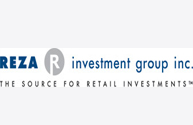
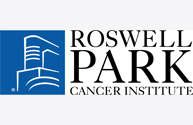
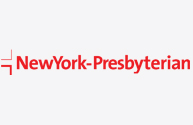

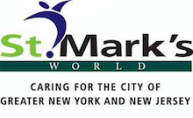
INFRASTRUCTURE PANEL
How Middle East Countries are Building Tomorrow’s Health Centers Today
| Dr. George Cheriyan, (Moderator) CEO/Chief Medical Officer, American Mission Hospital, Kingdom of Bahrain |
Mr. H. Delano Roosevelt, Director of New Business Development, Reza Investment Group, Kingdom of Saudi Arabia |
Dr. Khurshid A. Guru, Attending Surgeon, Vice-Chair, Department of Urology Director, Roswell Park Cancer Institute for Robotic Surgery Professor of Oncology |
Mr. Burak Malatyali, Vice President, Strategic Alliances, New York Presbyterian Hospital |
Dr. Gabi Hanna, Executive Director, Duke Translational Research Unit; Associate Director, Duke Cancer Institute, Surgical Facility; VP, American Remote Health, LLC |
Dr. Michael Morgan, President, St. Mark’s World; Founder, American Pulse |
Ambitious medical infrastructure projects are driving health care industry growth in the Middle East’s Gulf Cooperation Council (GCC) states of Bahrain, Kuwait, Oman, Qatar, Saudi Arabia, and the United Arab Emirates (UAE) attracting major investors. In Dubai alone, industry experts forecast that by 2020 Dubai’s private healthcare sector will need approximately 1,500 new hospital beds translating into an estimated investment of US$ 1.5 billion. Panel discussion will address massive healthcare facility construction projects across the Arabian Peninsula that suggest a significant boost in near-term regional demand for medical devices and technology, and a major opportunity for foreign manufacturers seeking new markets.
10:10 am – 10:20 am
Session Break
10:20 am – 11:20 am
Location: Lincoln Hall
(Second Floor)
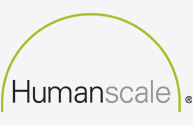
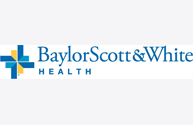
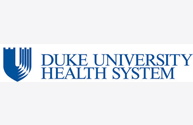
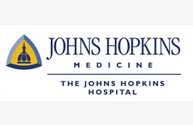
PATIENT SAFETY PANEL
Designing for Patient Safety: Best Practices to Reduce Medical Errors
| Ms. Tamara James, (Moderator), Head of Ergonomics Division, Duke University and Health System |
Dr. Yan Xiao, Director for Human Factors and Patient Safety, Baylor Scott & White Health |
Dr. Peter A. Doyle, Human Factors Engineer, Johns Hopkins Hospital |
Dr. Diana Anderson, Medical Planner Stantee Architecture |
National and regional quality and safety strategies regarding patient treatment, patient safety and costs include actions for building knowledge about quality problems and solutions, and actions for planning and implementing solutions at different levels of the health system in order to deliver effective healthcare services. These strategies must target the needs of the population at large, with emphasis on poor and marginalized (vulnerable) populations, which have poorer access to care. Effective quality and safety improvement is the result of many activities using systematic methods over a period of time. The development of tailored strategic plans and interventions plays an important role in creating conditions to stimulate and guide the various stakeholders to improve quality of performance and resource use. Establishing such strategies aims to institutionalize improvement work so that it survives particular governments.
11:20 am- 11:30 am
Session Break
11:30 am – 12:30 am
Location: Lincoln Hall
(Second Floor)
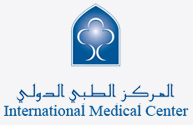
KEYNOTE SPEAKER
Dr. Walid A. Fitaihi,
Founder, Chairman of the Board of Directors & CEO,
International Medical Center,
Kingdom of Saudi Arabia
The cost of medical treatment in most countries around the world is on the rise, this is primarily attributed to living an unhealthy lifestyle thus leading to an increase in the number of illnesses and diseases. The continuation of living an unhealthy life would greatly contribute to the drainage of the national income, which in turn impairs most countries from providing medical treatments for their people.
Therefore, what is the ideal solution? How can we put a stop to this growing drainage?
12:30 pm – 1:30 pm
Location: Dining Room
(Third Floor)
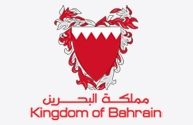


LUNCHEON BREAK
&
C3 LIFETIME ACHIEVEMENT AWARD PRESENTATION
Luncheon Invocation
Rabbi Arthur Schneier,
Founder & President,
Appeal of Conscience Foundation;
Senior Rabbi & Spiritual Leader,
Park East Synagogue, New York
Welcoming Remarks Introduction
Dr. Henry Kissinger,
Honorable Guest,
Chairman,
Kissinger Associates, Inc.,
Former Secretary of State,
United States of America
Recipient of 2016 C3 Lifetime Achievement Award
His Majesty
King Hamad Bin Isa Al Khalifa,
Kingdom of Bahrain
C3 Award Acceptance and Closing Remarks
His Excellency
Shaikh Khalid Bin Ahmed Bin Mohamed Al Khalifa,
Minister of Foreign Affairs,
Kingdom of Bahrain
1:30 am- 1:45 am
Session Break
1:45 pm – 2:45 pm
Location: Lincoln Hall
(Second Floor)



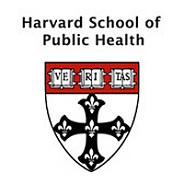
KEYNOTE PANEL
Myths and Realities of the Globalization of Healthcare Delivery Models
| Dr. Carlos Rodriguez-Galindo, (Moderator), Executive Vice President, Director of International Operations, St. Jude Children’s Research Hospital |
Dr. Rifat Atun, Professor of Global Health Systems, Harvard School of Public Health |
Dr. Thomas Gross, Deputy Director of Science, Center for Global Health, National Cancer Institute |
Dr. Sharif Abbouelnaga, CEO and Medical Director, Children’s Cancer Center 57357, Cairo, Egypt |
Dr. Sima Jeha, Regional Director for Middle East Programs, St. Jude Children’s Research Hospital |
This panel is based on how US-Arab healthcare, at all levels, must work together in the context of a globalized world. The global world is no longer simply a source of new markets or cost factor savings; it is a source of innovation. To survive and prosper today, both regions must expand their focus beyond the traditional views of their immediate boundaries and truly develop a collaborative partnership that encompasses all aspects of being global partners capable of developing and delivering a strategic value proposition that takes advantage of regional integration to create intrinsic value for each other and the world based on the realities of healthcare delivery models. The panel examines the “how to” regarding the concepts and frameworks used to create a healthcare delivery model to address the challenge and the management of global integration of multinational healthcare systems in a multipolar world.
2:45 pm – 3:00 pm
Session Break
3:00 pm – 4:00 pm
Track#1
Location: Lincoln Hall
(Second Floor)
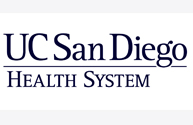

BIG DATA PANEL
The Impact of Big Data and Cyber Security on the Future of Healthcare Technology
| Dr. Lawrence (“Larry”) Friedman, (Moderator), Associate Dean, CEO, UC San Diego Health System |
Dr. Farley R. Cleghorn, Global Head, Health Practice, The Pallidium Group |
Mr. Mounir Marhaba, International Health & Business Executive, Knowledge Broker |
Mr. Paul Caiazzo, Co-Founder, CEO & Chief Security Architect, TruShield Security Solutions |
The big data market is expected to grow in the MENA region from $0.90 billion in 2013 to $3.35 billion in 2018. The sharing and applying of big data will provide more efficient clinical decision-making by leveraging vast amounts of patient medical records and research information eliminating unnecessary treatments. Together, the combination of big data and cyber security will play a major role in delivering improved medical outcomes by handling extremely large data sets necessary to render “real-time” patient diagnostics and treatment decisions.
By witnessing how big data has transformed consumer IT, it is clear that the promise of big data in healthcare is immense (think Google, Facebook and Apple’s Siri, which all rely on processing and transmitting massive amounts of data). While its potential in healthcare has not been fulfilled, the question is not if, but when. With big data poised to change the healthcare ecosystem, organizations need to devote time and resources to understanding this phenomenon and realizing the envisioned benefits. As big data becomes a reality for the healthcare industry, hospital CEOs, CIOs and decision makers must consider the impact it will have and, therefore, the need to create a cyber security plan for adopting such technology in the future in order to embrace innovation and improve/protect the overall efficiency and quality of patient care and information.
By attending this panel, you will hear and learn how big data, the industrial internet and cyber-security solutions are linking patients, doctors and hospital equipment to deliver quality healthcare in the Middle East and North Africa.
3:00 pm – 4:00 pm
Track #2
Location: Main Lounge
(First Floor)
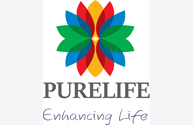


DIABETES PANEL
An Alternative Answer to a Global Challenge
| Mr. John Payne, Chairman & CEO, PURELIFE Health Sciences Group, LLC |
Dr. Walid A. Fitaihi, Founder, Chairman & CEO, International Medical Center, Kingdom of Saudi Arabia |
Mr. John L. Brooks III, Managing Director, Healthcare Capital LLC |
Diabetes has become one of the most dangerous and prevalent diseases in the world today and is growing exponentially. Medical experts warn that it will affect 600 million people by 2035 at a projected cost of $635 billion globally. Five countries in the Middle East— Saudi Arabia, Kuwait, Qatar, Bahrain and United Arab Emirates— are among the top 15 globally with the highest prevalence of diabetes. From now until 2035, these countries are projected to have the fastest growth in diabetes, with children accounting for almost 50% of new diabetics in some countries. The IDF warns that the health consequences from diabetes are more severe today than previously recognized. It is time to look to an answer that encompasses genetics, inflammation and gut bacteria for a solution without contraindications.
The countries of Qatar, the United Arab Emirates and Oman are facing the biggest rise in diabetes, according to the International Diabetes Federation. From now until 2035, these countries are projected to have the fastest growth of diabetes with rates in the Middle East and North Africa increasing by 96.2%. The IDF also warns that health consequences from diabetes, which include heart diseases, strokes, blindness, kidney disease and lower limb amputations, are more severe today than previously recognized. There is, however, new hope. A medical answer is emerging from recent scientific research into newly discovered natural plant sources. Leading medical experts are predicting that eighty percent (80%) of Type 2 diabetes could be prevented — and even reversed! This new technology involving plant extracts supports the World Health Organization report WHO TECHNICAL SERIES REPORT 916 which published the following statement on page 42: ‘We should eat a diet consistent with the diet our genes became programmed to respond to.”
The WHO’s finding confirms the fact that modern-day processed foods, genetically modified foods, hybridized foods, sugar and chemical additives are not genetically compatible to humans. Since their introduction into mankind’s food stream starting in the 1940’s, chronic degenerative diseases, such as diabetes and metabolic syndrome have increased exponentially worldwide. Type 2 diabetes has increased in every country and now affects more than 382 million people worldwide — with many more undiagnosed. In Saudi Arabia, the prevalence in adults jumped from about one-in-ten to almost 25% of the population; other Arab countries have similarly high levels. Diabetes kills more than 10% of all adults in the region with almost half of them being productive people under the age of 60.The rapid increase in diabetes rates in the Middle East strains each countries health care agencies and imposes an enormous economic burden on governments and businesses. As of 2013, the region spends more than $13.5 billion annually on diabetes.
In Qatar, expenditures are as high as $3,000 per person. While the expenditure on diabetes is projected to double by 2035, it will not be enough to halt or slow the spread of the epidemic. Millions of people will remain undiagnosed, with the majority being diagnosed late in most countries, which costs the healthcare system significantly more due to the disease’s complications. The global failure to invest in viable long term answers to Type 2 diabetes has led all governments to face this current and exponentially growing crisis. Worse, current prescribed medicines for diabetes do not provide viable solutions:
- In May of 2015, the U.S. FDA issued a health warning challenging the effectiveness of a new class of Type 2 diabetes drugs.
- An investigation by MedPage Today and the Milwaukee Journal Sentinel found that from 2003-2013, none of the 30 new diabetes drugs that came on the market were proven to improve key outcomes, such as reducing heart attacks or strokes, blindness, or other complications of the disease.
- Many of the approved drugs for diabetes can cause serious side effects for patients.
4:00 pm – 4:10 pm
Session Break
4:10 pm – 5:10 pm
Location: Lincoln Hall
(Second Floor)

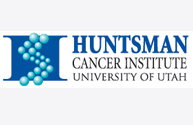

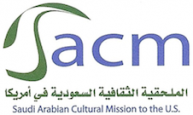

WOMEN’S HEALTH PANEL
The Major Issues Women are Facing in the Region
| Ms. Jane Coury, (Moderator), Program Officer, National Institutes of Health (NIH) |
Ms. Nahlah Al-Jubier, Director, Center For Career Development, Saudi Arabian Cultural Mission |
Ms. Paige Peterson, Executive Vice President, Huntsman Cancer Foundation, Member of Board of Directors, National Council on U.S. Arab Relations |
Dr. Janet Breslin Smith, Consultant, Crosswinds Strategic Consulting |
Dr. Ghaidaa Hetou, CEO & Founder, i-Strategic LLC |
The incidence of advanced stage breast cancer continues on the rise in the Middle East appearing in Arab women on average at least 10 years earlier than it does in women in Europe or the United States. Female obesity in the UAE, Bahrain, and Jordan averages nearly 40% of the population. And seven out of the top 10 countries ranked by depression in women are in MENA with women between the ages of 15–49 as the most affected. This panel will address how these and other leading women’s health issues are being treated by healthcare providers and stakeholders in the public and private sectors.
5:15 pm – 5:45 pm
Location: Lincoln Hall
(Second Floor)
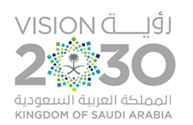
CLOSING PLENARY
Investments in R&D are Transforming Healthcare in the Middle East
Dr. Ali Al Rakaf,
Founder of Project CODE,
Kingdom of Saudi Arabia
Project CODE- Kingdom of Saudi Arabia
The Kingdom of Saudi Arabia (KSA) recently announced the public launch of Project CODE, an international development effort designed to address three of the biggest challenges confronting the Middle East today: healthcare, food security and homeland security. C3 International, a Project CODE partner, is proud to have “2016 C3 US-Arab Business & Healthcare Summit” serve as the official “launch” of the Project CODE initiative in the United States of America.
Project CODE; a technology transfer project, has been established as an administrative and scientific vehicle for the transfer and localization of many strategic medical and military technologies. It is an accelerator program of unprecedented scale.
Project CODE will invest into technologies with the greatest potential impact. Neurological diseases, for example, account for the fastest-growing segment of healthcare expense in the developed world, with conditions such as Alzheimer’s Disease, Parkinson’s Disease, dementia and depression being among the most common. Depression affects hundreds of millions of people across the world and Alzheimer’s Disease is one of the most critical global health challenges facing our generation – over 35 million people are currently living with the disease. This number is expected to double by 2030 and triple by 2050, with over 115 million people affected.
Project CODE seeks to increase awareness about neurological disorders not only among doctors and caregivers, but also within the general population. The project plans to initiate a dementia awareness and prevention program in KSA, which would be the very first program of its kind within the Middle East. This prevention program will provide caregivers with the latest technology to detect neurodegenerative symptoms, as early as possible, to improve treatment outcomes for patient and caregiver alike.
Many of the technologies targeted by Project CODE have multiple applications. One such technology is nanopores, which are tiny holes etched within extremely thin sheets of molybdenum disulphide (MoS2). These nanopores have been shown to have many exciting uses within the medical field, enabling more effective analysis of DNA, RNA and other critical protein chains. Nanoporous materials will make genetic sequencing and analysis far less expensive and available to all. In addition, nanopore technology can convert high volumes of seawater into drinkable water with tremendous efficiency and so could potentially transform Saudi Arabia’s desert lands into an agricultural oasis.
